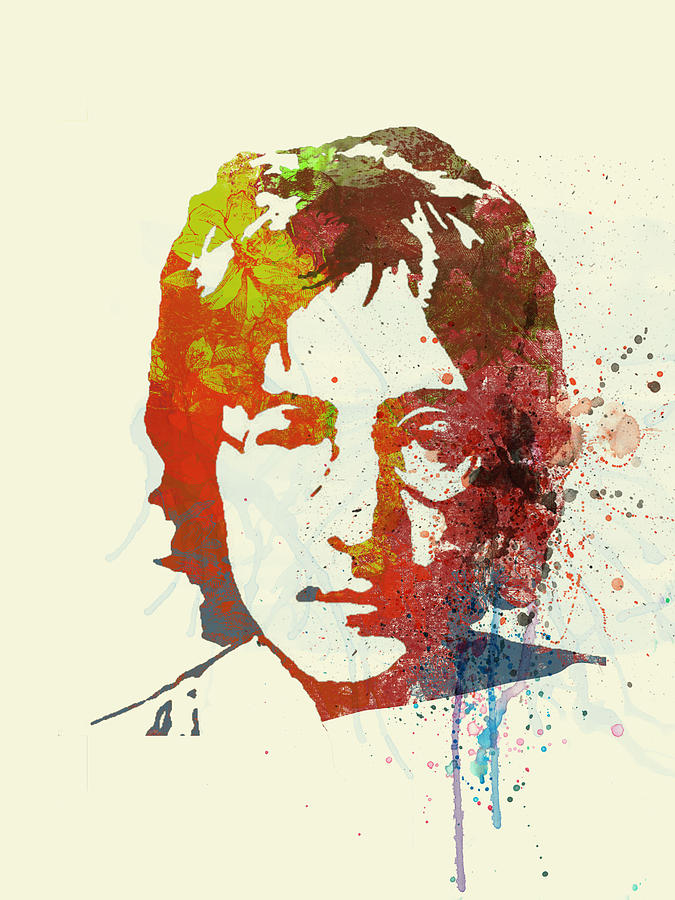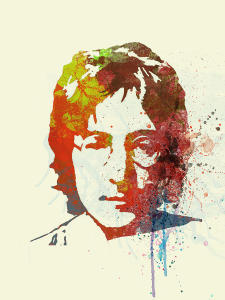
Podcast: Play in new window | Download
Subscribe: RSS
 December 8, 2014 – Segment 1
December 8, 2014 – Segment 1
Marc shares some of the events that happened on this day in history, including the birth of Flip Wilson, the launch of the 1962 New York City newspaper strike, and the murder of John Lennon.
Today is,
–Bodhi Day, Japan
–CARICOM-Cuba Day, Caribbean Community and Cuba
–National, Tree Planting Day, Malawi
–National Youth Day, Albania
On This Day,
1596 – Luis de Carabajal the younger, one of the first Jewish authors in the Americas, died in a act of faith during the Spanish inquisition in Mexico City.
1660 – A woman appears on an English public stage for the first time, in the role of Desdemona in a production of Shakespeare’s play Othello. The actress is believed to be Margaret Hughes http://en.wikipedia.
7 December 1787 – Delaware becomes the first state to ratify the United States Constitution.
1813 – Premier of Beethoven’s Seventh Symphony.
1863 – President Abraham Lincoln announces his plan for Reconstruction of the South.
6 December 1865 – The Thirteenth Amendment to the United States Constitution was adopted. The amendment officially abolished and continues to prohibit slavery and involuntary servitude, except as punishment for a crime. http://www.law.cornell.edu/
1914 – World War I: A squadron Britain’s royal Navy defeats an inferior squadron of the Imperial German High Seas Fleet in the Battle of the Falklands Islands in the South Atlantic.
1927 – The Brookings Institution of the United States’ oldest think tanks, is founded, by Robert S. Brookings. http://www.
1941 – December 7 & 8 – The Bombing of Pearl Harbor/ On the 8th of December President Franklin D. Roosevelt declares the 7th to be “a date which will live in in\famy” after the U.S. declares war on Japan.
1941 – Japanese forces simultaneously invade Malaya, Thailand, Hong Kong, the Philippines, and the Dutch East Indies.
7 December 1949 – The government of the Republic of China moves from Nanking to Taipei, Taiwan.
1949 – The United Nations Relief and Works Agency for Palestine Refugee in the Near East is established to provide aid to Palestinian refugees who left their homes during the 1948 Palestinian exodus.
1953 – U.S. President Dwight D. Eisenhower delivers his ‘Atoms for Peace’ speech. http://www.eisenhower.
1962 – Workers at four New York City newspapers, go on strike for 114 days.
1963 – Pan AM Flight 214, 8s struck by lighting and crashes near Elkton, Maryland, killing all 81 people on board.
1972 – Apollo 17, the last Apollo moon mission, is launched . The crew takes the photograph known as The Blue Marble as they leave the Earth.
1976 – The T. Thomas Fortune House in Red Bank, New Jersey was designated a National Historic Landmark. The house was built around 1883 and was the home of Timothy Thomas Fortune from 1901 to 1911. Fortune was born enslaved October 3, 1856 in Marianna, Florida. He was freed after slavery was abolished in 1865. Although mostly self-taught, in 1875 Fortune enrolled at Howard University to first study law and then journalism. In 1876, he dropped out to begin work at the People’s Advocate, a Washington, D. C. newspaper. In 1881, Fortune moved to New York City and founded a newspaper that four years later would become the New York Age, the Afro-American journal of news and opinion. The New York Age became the most widely read of all Black newspapers. He sold the newspaper in 1907. Fortune was the leading advocate for using Afro-American to identify his people, reasoning that “they are African in origin and American in birth.” In 1890, Fortune co-founded the National Afro-American League to right wrongs against African Americans authorized by law and sanctioned or tolerated by public opinion. The league fell apart after four years but was resurrected in 1898 as the National Afro-American Council with Fortune as president. In 1923, Fortune became editor of Marcus Garvey’s Universal Negro Improvement Association’s Negro World. At its height, Negro World had a circulation of over 200,000 and was distributed around the world. (thewright.org)
1976 – The Mary Ann Shadd Cary House in Washington, D. C. was designated a National Historic Landmark. The house was the home of Mary Ann Shadd Cary, a writer and abolitionist who was one of the first African American female journalist and lawyers, from 1881 to 1885. Cary was born October 9, 1823 in Wilmington, Delaware. In 1840, she moved to West Chester, Pennsylvania and established a school for Black children. When the Fugitive Slave Law of 1850 threatened to return free northern Black people to bondage, Cary moved to Windsor, Ontario, Canada where she founded a racially integrated school. In 1853, Cary founded The Provincial Freeman newspaper which promoted temperance, moral reform, civil rights, and Black self-help. Published until 1859, it was one of the longest published Black newspapers before the Civil War. In 1861, Cary published “Voice From Harper’s Ferry,” a tribute to John Brown’s unsuccessful raid. That same year, she returned to the United States and during the Civil War served as a recruiting officer to enlist Black volunteers for the Union Army. (thewright.org)
1980 – John Lennon is murdered by Mark David Chapman in front of The Dakota in New York City.
1987 – An Israeli tank transporter kills four Palestinian refugees and injures seven others during a traffic accident at the Erez Crossing on the Israel-Gaza Strip border, sparking the First Intifada.
1987 – Ronald Reagan and Soviet leader Mikhail S. Gorbachev singe a treaty calling for destruction of intermediate-range nuclear missiles.
1991 – The leaders of Russia, Belarus and Ukraine sign an agreement dissolving the Soviet Union and establishing the Commonwealth of Independent States.
1991 – South African writer Nadine Gordimer, wins the Nobel Prize for Literature. http://www.sahistory.org.za/
7 December 1992 – Derek Alton Walcott was awarded the Nobel Prize for Literature “for a poetic oeuvre of great luminosity, sustained by historic vision, the outcome of a multicultural commitment.” Walcott was born January 23, 1930 in Castries, Saint Lucia. He earned his Bachelor of Arts degree from the University of the West Indies in 1952. In 1959, he founded the Trinidad Theater Workshop and in 1981 founded Boston Playwrights Theater at Boston University. Walcott has published more than 20 plays, including “Wine of the Country” (1953) and “Walker and the Ghost Dance” (2002). His play “Dream on Monkey Mountain” won the 1971 Off-Broadway Theater (OBIE) Award for Best Foreign Play. (thewright.org)
1992 – U.S. troops land on the beaches of Somalia as Operation Restore Hope, begins. http://novaonline.nvcc.edu/
1998 – Eighty-one people are killed by armed groups in Algeria.
Births
1542 – Mary Queen of Scots (d.1587) http://en.wikipedia.org/wiki/
1860 – Amanda McKittrick Ros, Irish author and poet, d (1939)
1868 – Henry Hugh Proctor, author lecturer and clergyman, was born near Fayetteville, Tennessee (d.1933)
1869 – Jessie Belle Ritte4nhouse American literary critic and poet (d. 1939)
7 December 1910 – Louis prima, American singer-songwriter, trumpet player and actor (d.1978)
1920 – Tatamkulu Afrika, South African poet and author (d. 2002)http://www.sahistory.org.za/
1925 – Sammy Davis Jr., singer, dancer, film and stage actor, was born in New York City. (d.1990)
1933 – Clerow “Flip” Wilson, Jr. comedian and actor was born in Jersey City, New Jersey. (d.1998)
1938 – John Kofi Agyekum Kufour the second President of the Republic of Ghana, was born in Kumasi Gold Coast (now Ghana).
7 December 1942 – Reginald F. Lewis, lawyer and entrepreneur, was born in Baltimore, Maryland. Lewis earned his Bachelor of Arts degree from Virginia State University in 1965 and his Bachelor of Laws degree from Harvard Law School in 1968. Over the next 15 years, Lewis helped a large number of Minority Enterprise Small Business Investment Corporations (MESBICs) acquire funding. It is estimated that Lewis negotiated more than $100 million in transactions for MESBICs between 1973 and 1984. In 1983, he formed the TLC Group and in 1984 purchased the McCall Pattern Company for $1 million. In 1987, he sold McCall for $95 million and purchased Beatrice International for $650 million, net of operations that he sold. In 1992, Forbes Magazine estimated Lewis’ net worth at $400 million. That same year, Lewis gave $3 million to Harvard Law School to establish the Reginald F. Lewis International Law Center, the first building at the university named after an African American. Lewis died January 19, 1993. His autobiography, “Why Should White Guys Have All the Fun? How Reginald Lewis Created a Billion Dollar Business,” was published in 1995. In 2002, his foundation gave $5 million to open the Reginald F. Lewis Museum of Maryland African American History and Culture. The Reginald F. Lewis High School in Baltimore is named in his honor. (thewright.org)
Deaths
7 December 43 BC – Cicero, Roman philosopher lawyer, and politician (b. 106 BC)
1811 – Eliza Poe, -British-bon American Actress and mother of Edgar Allen Poe B.1787 http://www.findagrave.com/cgi-
1908 – William Garvey Carney, Congressional Medal of honor recipient, died.
7 December 1994 – Marjorie Stewart Joyner, inventor and entrepreneur, died. Joyner was born October 24, 1896 in Monterey, Virginia. In 1916, she became the first African American to graduate from A. B. Molar Beauty School in Chicago, Illinois. After graduating, she went to work for Madam C. J. Walker, overseeing 200 of her schools as the national advisor. On November 17, 1928, Joyner received patent number 1,693,515 for her invention of the permanent wave machine. (thewright.org)
1967 – Robert Henry Lawrence, Jr., United States Air Force officer and the first African American selected for astronaut training, died in an airplane crash. (b. 1935)
1973 – Robert Resha, activist and Journalist, dies in exile. http://www.sahistory.org.za/
1978 – Golda Meir, Israeli politician, 4th Prime Minister of Israel (b.1898)http://en.wikipedia.org/wiki/
7 December 1981 – Ava Helen Pauling, American human rights activist (b.1903)
7 December 1985 – Robert Graves, English author and poet (b.1895)
6 December 1991 – Headman Tshabalala, founding member of the group Ladysmith Black Mamzabo is shot and killed.
Sources: The People History; This Day in Labor History; Wikipedia List of Historical Anniversaries; This Day in Women’s History; This Day in African History;History.com; History Orb; Yenoba; Selected Black Facts; Phil Konstantin’s North American Indian History; and This Day in Music




